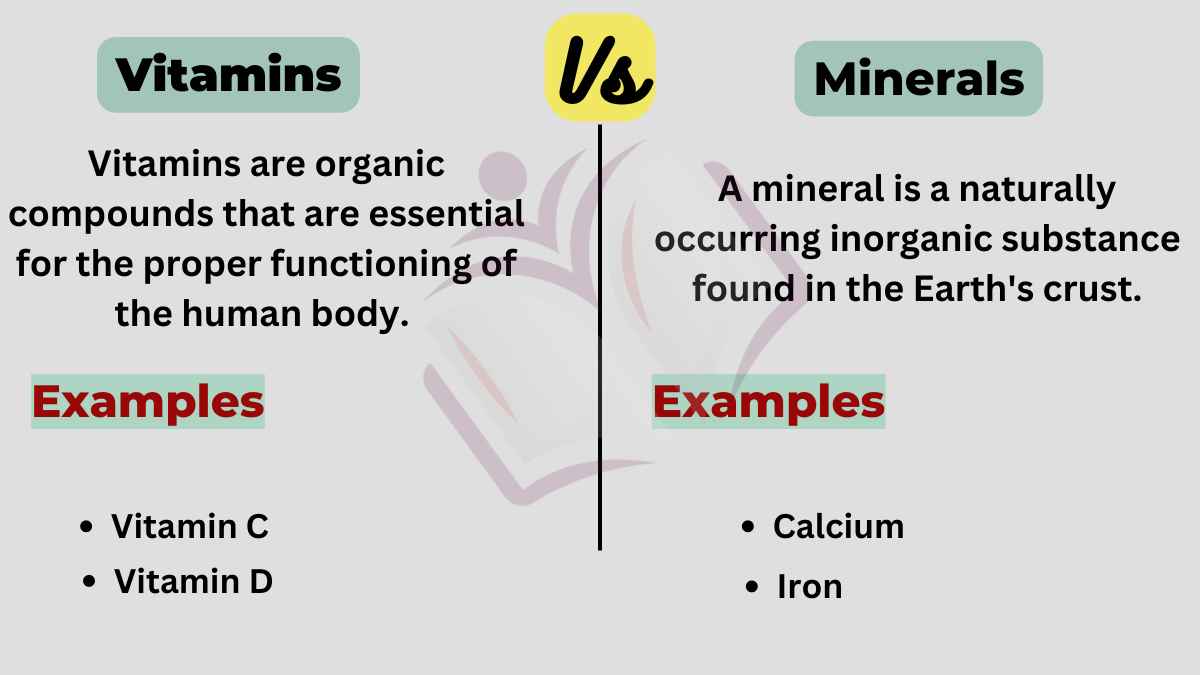The primary difference between vitamins and minerals are that Vitamins are organic compounds required in small amounts, while minerals are inorganic elements needed in trace or larger amounts for various bodily functions.

What are Vitamins?
Vitamins are organic compounds that are essential for the proper functioning of the human body. They are needed in small quantities and cannot be synthesized by the body, so they must be obtained through diet or supplements.
Vitamins play crucial roles in various biological processes, such as growth, development, metabolism, and maintenance of overall health.
What are Minerals?
A mineral is a naturally occurring inorganic substance found in the Earth’s crust. It possesses a specific chemical composition and a distinct crystal structure. Minerals are formed through geological processes over long periods of time.
They have various physical properties, such as color, luster, hardness, and cleavage. Minerals play a crucial role in numerous industries, including construction, electronics, and manufacturing.
Vitamins vs Minerals
The key difference between vitamin and mineral is given below:
| Vitamins | Minerals | |
| Source | Obtained from plants, animals, and food. | Obtained from soil, water, and food. |
| Structure | Organic compounds. | Inorganic compounds. |
| Required | Needed in small quantities. | Needed in larger quantities. |
| Function | Act as coenzymes or cofactors in metabolic processes. | Serve as structural components, regulators of body processes. |
| Examples | Vitamin C, B complex vitamins, vitamin D. | Calcium, iron, potassium, zinc, magnesium. |
| Absorption | Absorbed through the digestive system. | Absorbed through the digestive system. |
| Storage | Some vitamins can be stored in the body. | Minerals are not typically stored. |
| Deficiency | Deficiencies can lead to specific health conditions. | Deficiencies can lead to various health conditions. |
